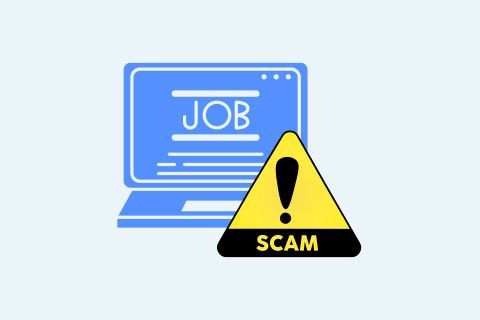BBB Warns Job Seekers About Skyrocketing Rates of Employment Scams
- Home
- Self-Check Blog
- Self-Check
- BBB Warns Job Seekers About Skyrocketing Rates of Employment Scams

July 6, 2023
In a recent announcement, the Better Business Bureau (BBB) warned job seekers about a rapid increase in job scams. The BBB also released an in-depth study it performed concerning these increasing scams. The agency found that jobseekers lost approximately $840,000 to these scams in the first three months of 2023. This estimation marks an increase of 250% over the same period in the previous year.
These job scams often result in identity theft. Identity theft is when scammers use stolen information to impersonate the victim, make unauthorized purchases, open new financial accounts, and commit other fraudulent activities in the victim’s name. The BBB’s study revealed that 34% of victims provided their driver’s license numbers, and 25% gave their Social Security Numbers to job scammers. Thieves use this information to take advantage of the victim’s identity.
Another significant type of fraud is the use of fake checks. The BBB noted that 36% of reported complaints concerning job scams accompanied counterfeit checks. As many scammed job seekers have discovered, federal banking rules require banks to credit checks to accounts immediately. However, when the bank discovers fraudulent checks, it recovers that money from the account holder. In many cases, the account holder may have already paid the scammer part or all of these funds for equipment or other expenses needed to acquire the supposed job.
Jobseekers should carefully consider job offers from an unfamiliar employer, taking care not to rush in uninformed. The BBB provided several tips for jobseekers to help avoid these types of scams, including:
- Research job offers thoroughly: This includes using the company’s website to acquire contact information to verify the offer.
- Avoid providing personal information, such as your date of birth, address, or financial information on your resume, online applications, or to anyone you have not already verified.
- Check out the BBB website: Here, you can check the company’s job offers.
- Examine the employer’s email: Emails that do not match the business’s typical protocols are a red flag.
- Avoid jobs requiring paying in advance: Very few jobs require applicants to pay for the job.
- Don’t let your guard down once you start working: The job could still be a scam even after you begin working.
Taking the time to perform due diligence can go a long way to avoiding becoming the victim of a job scam. Self-checks could identify and allow you to correct any inaccurate information that an identity thief might have caused. Act swiftly and promptly report any scams or incidents you discover to the appropriate authorities.
You can stay one step ahead of hackers and identity thieves by running a quick self background check. Click here to get started.
